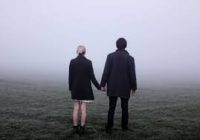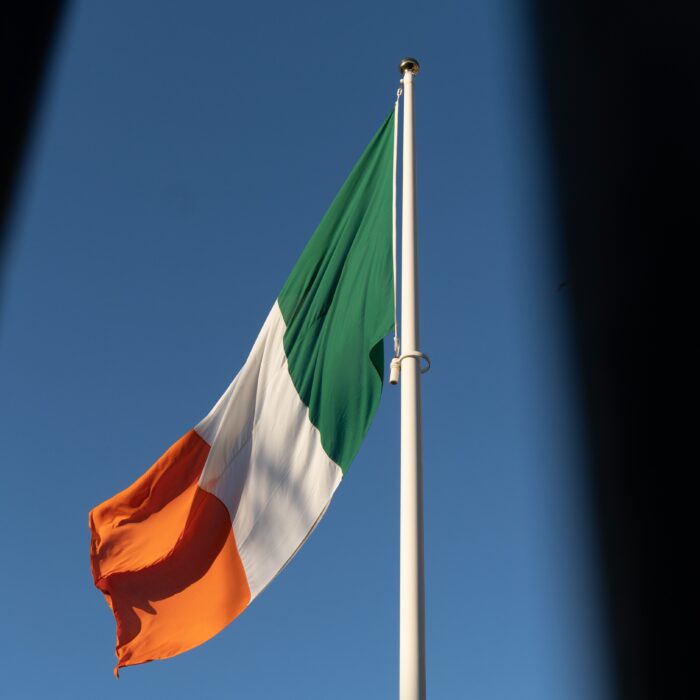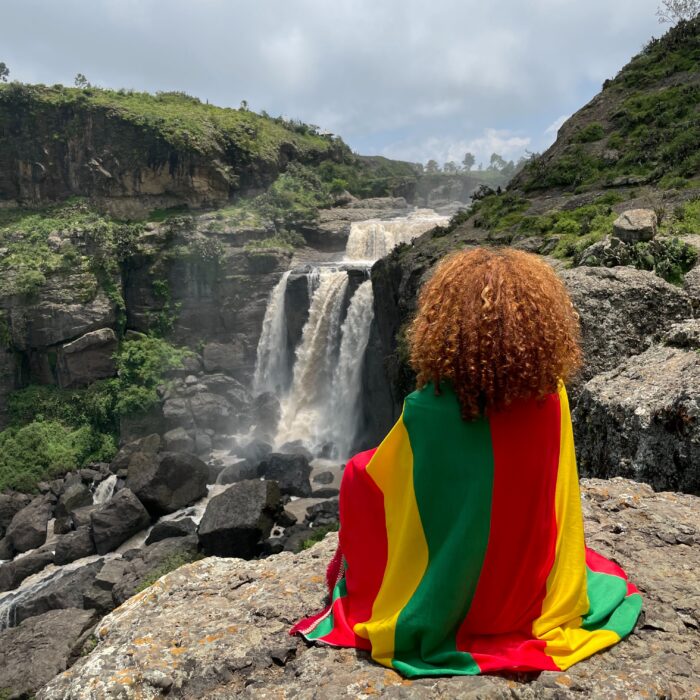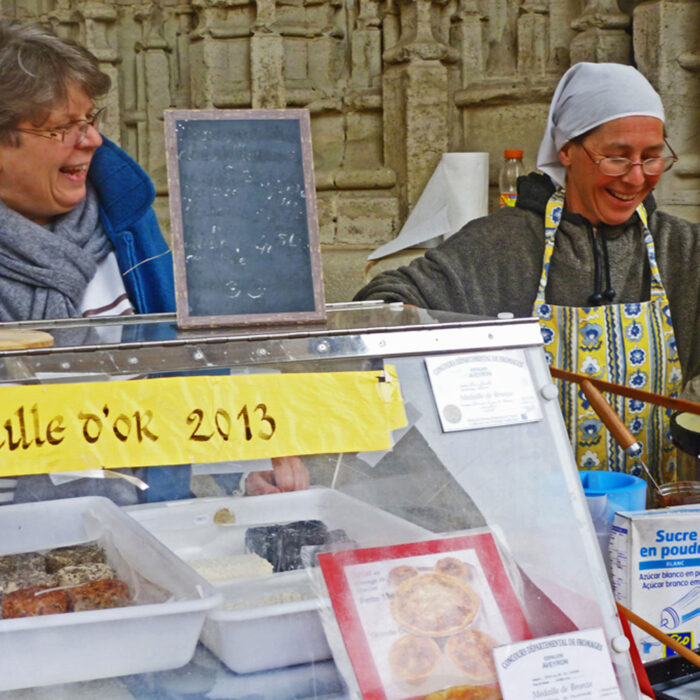You have no items in your cart. Want to get some nice things?
Go shoppingMy first love was controversial: trouble for a stormy, sunlit season, then a childish thing, cast off.
We first met at the hen do of his several-years-older sister, with whom I worked an indifferent weekend job in a café. For her, it was a dead-end, deep-sighing career, an entirely different thing to the ironic, hipster slant on coffee-ground service; for me, it was an easy way of earning £2.20 an hour, cleaning the inside of the oven, tipping coffee dregs down the sink, dropping tray-fulls of clean dishes (once) all over the cold, tiled floor. I had been under-age when I started and was awful, frankly, but took pleasure in my under-achievement, insufferable over-achiever that I was. Well, who can be perfect all the time…? She was twenty-five and evidently full of patience. It surprises me now that, rather than inviting me to her hen do, she didn’t just smack me in the face.
But.
I’d gone along with the back-to-school theme, which was, for me, perhaps a little on the nose. I attempted to disguise my nervousness with nonchalance amongst the older, more experienced, girls; sorry, women. All looking at me strangely. Maybe they could tell I was wearing my actual white school shirt and my actual grey school skirt, which was a short kilt with a chrome safety pin that it never occurred to me to push through both layers. It had also never occurred to me to buy a new one, despite the fact that it had been my skirt at eleven and was still my skirt then, growing shorter and softer with every passing year. Ah, hello thigh, I’d think, increasingly, at the beginning of each new year. I’d always felt terribly scandalous, learning in it, acing exams in it, in that small-scale rebellion way that only teenagers can. I was so complex, obviously. However, the addition of alcohol and knee-high boots to it that night unsettled me, wedged in as I was between the adults on the bride-to-be’s sunken sofa, my skirt riding too high up my bare leg.
I didn’t know what to do with myself. I was offered a cigarette and took it.
I might have realised, on some level, that I was dressed like a ubiquitous Japanese fantasy, a paedophilic, honey-trapping line-crosser. Though it was just a skirt. But I couldn’t have phrased that, I couldn’t have used those words to describe myself, or my skirt, abstractly. I didn’t know what this meant to whom, or what all this meant to myself. So I drank through my discomfort, and made eyes at the man across the room. He was there to take photos of us chatting and drinking before we went out on the town.
I think he also wondered why he was invited.
Perhaps it was so she could invite everyone else.
He started as a feature of the room, but gradually he became the centre of it; the epicentre of my juvenile gaze. His conspicuous Celtic tattoo was like a red rag to me, as was the fact that he was completely and utterly unknown: growing up on the UK’s Devon-Cornwall border, local strangers were like gold dust. By that age, I’d already written most people off, or had fallen into the habit of glossing over them, dismissively, for one reason or another. No-one’s snobbier than a teenager, and no teenager was snobbier than me. Give me more! I’d demand endlessly, as if anyone was obligated to comply. But this man was a special edition at a midnight launch, exclusive in wrapped plastic, with never-read pages, and a never-creased (by me) spine. It occurred to me then that dating an older, stubbled stranger would be like casually donning the Crown Jewels on the school bus.
I wanted.
I could.
My limbs started twitching.
His face was as monochromatic as piano keys — a pale and dark mix of English and Italian – and his artful, mature stubble framed a quiet, self-deprecating look. There was just enough polyester in his T-shirt to make him seem closer to the edge of something. Something akin to the antithesis of my diligence. I got up, drunk on alienated dislocation, and sat down with him. The room buzzed with the fact that I was the sweetest of sixteens and he was twenty-two.
I laughed too loud, he angled himself too closely.
We looked each other in the eye. We saw something that surprised us.
Sharp looks chased us as we talked.
In spite of this, the next weekend we were up on Devon’s north coast, wandering amongst the rock pools with the radiance of the chosen. I’d visited that beach all my life — to lie in the sun, to swallow salt in the cold surf, to bury my brother’s feet in the sand; but never like this. My sandcastles days were suddenly over. We both felt it, the elusive it, almost immediately, I think, delightfully undermining my ideas of mere status. He was nothing less than a casual, obvious inevitability. It had all happened before it happened — before I got up off that sofa — in a way; a decision decided before it occurred to me to consider it. I surprised both myself and my audience with my iteration of a long-accepted fact.
Now, thirteen years on, the exact details escape me, so in my mind’s eye that day played out like a Lana del Rey video: a tableau of hot sunlight over aching, glowing bodies, slow, shared cigarettes under beachfront clouds, and a rose unfurling in colour at speed. What I’ve constructed couldn’t be bettered, couldn’t be more romantic, and yet I don’t think it is too far from the truth. I know we ate fish finger sandwiches in an empty café with gingham table clothes and a Polish waitress and kissed deeply by the water’s edge, flanked by sun-flecked spray, me reckless with excitement, him possibly wondering how far he could take me before he had to take me home.
His smile was provocative to me in the extreme; we fit together like jigsaw pieces.
An unexpected image, in softly shocking colours.
Thereafter, it was unrelenting: every Wednesday and every weekend I would blossom like a flower and drive off with him in his VW Golf, sat high in the front seat with his hand smouldering on my knee. We’d sing along to mix-tape punk rock as we flew down country lanes, hemmed in by hedgerows, driving like locals, and then I’d feel nervous, suddenly, as we pulled into his driveway. His sudden presence in my life was like a volcano I willed, passionately, to erupt, even if it preceded my destruction, which meant I burned through the stages of waiting, waiting, why am I waiting? in a matter of weeks, my body a newly discovered entity: I was happy to be led into deeper water on the crest of this sexy, intoxicating wave. In fact, jumping off the edge with him was a sensual relief, and a liberation — finally, I was asking questions that somebody would answer — so I wore his red stubble marks like rare adornments and draped myself luxuriously across him in public, not caring who might see. In fact, the more eyes the better. The great splash we made raised eyebrows. I’d always wanted to be reconsidered: to diversify my single story. My solo saga. Here was the methodology. Coyote Ugly was on in the background, once, during; I’d see news reports of teachers and students, just a year or two either way, and know that that was a completely different thing. Such are the grey areas of life. At school, I was asked twinkling questions from behind fringes and through mouths of metal and I would answer in smiles and evasions, thrilled by what I could imply about this foreign country of sex and grown-ups that most had yet to find.
One evening, my mother insisted we had a serious conversation: her in a steaming bath, me on the shower step, warm hands between my knees. Most prim. She wanted to talk about the science, the whys and the wherefores, the necessary precautions, and I didn’t tell her that this moment was historic, that it was all taken care of several weeks before. I did tell her that everything was fine, which it was: I never had to be told that this was a stepping stone for me, not an end point; I was never burdened by misguided naivety. I took life most seriously and was relieved to find that my mother did also. She hinted at issues of control, of dominance, and I assured her that I had all of it, except when I relinquished it, though I left the latter unsaid. She looked relieved. She liked him, she said, now that she knew him, and was trusting that I really liked him also. I nodded, I blushed. Yes, mum, I said; gardenia bubble bath smells like truth, and responsibility, to me, even now. It was a tricky, adult moment — a pulling away from the necessity of her advice, perhaps — but in my mind, it will be forever wreathed in flowers, forever imagined in foam.
With him, I was daring the world to keep up.
And I felt new, I felt interesting. That was his greatest gift: he lavished attention on me and I felt worthy of it. I was unmatched, perhaps, but brought to new things, new people, new ways of spending a Sunday morning, a Saturday night. Together we created a wider world, a colourful Venn diagram that poked fun at age and demographics. I forever had a story to tell — hinting, alluding, never quite saying — and I learnt that I could make shadowy eye bags and slapdash homework seem most mysterious. I’d never been like that. As one does, when young, or always, perhaps, I made it all about me, and my story, when I described it. So did he, maybe; I never thought to listen. But he was a loner, so only spoke out loud to me.
For my birthday, he made me a beautiful desk chair — a fruit of his profession — that still sits in my bedroom today. Yellow patterned fabric, strong, upright legs, dark wood. Hand-carved. Covered with clothes in my marital home. A message in pencil on the underside of the seat that, although I have tried, I cannot rub out. For me, he gave up smoking. For me, he relented, without pause.
But.
Like twisting cigarette smoke, like the hot scent of gardenias, our love would need bottling not to dissipate, and there was nowhere in my life’s plan for it to go. Education and ambition had already defined where our tracks would separate — even the exact moment I would exit the train, baggage in hand — whilst he would remain upon it, watching out of the window, stuck on a hometown loop. I could see past the end of our relationship, even before I could bear it. Us, unbottled.
Label smudged, cork out.
Had I been an adult, I would have wondered why we fought it, why we persisted, but to a teenager this is epic romance, captured, canned, personified in two bodies. In some ways, I was in love with the romance of that train. He was always on the other side of the window from me, my fingertips upon the cold glass, drawing love hearts for him in my condensing, outdoor breath. Though together, always separate. How I ached for him. And besides, there was little else to do, and nobody to meet: I didn’t believe that there were any revelations to be had with the people I’d known since childhood.
This could only have happened then, perhaps, for that reason. And only there: by the moorlands, by the sea.
I had been raised next to the wilds, after all.
I’d grown out of that earth. We all had.
So, romance and youth presiding, I cast us as epic, tragic lovers, due to be divided by duty and the inevitabilities of time, having already fought fate and the world’s scorn. It was all too much, so I started to cling to him like a pulp fiction heroine, tearful with teenage regularity, fated to accept the painful wrench of a rightful, productive end. In fact, I became endlessly consistent in my amateur dramatics, though in the interim I swapped my short school skirt for Sixth Form’s mufti, and cut and grew out my hair, mentally, many, many times. I revelled in time’s other changes. In all aspects but him, I grew. Sixteen to eighteen is a steep climb, a rocky hill, but through our love, and my commitment to it — everything is validated by persistence, after all – I had somewhat arrested my development.
I became a remote island, pushing myself further from my ambitions, my peers, though, unbeknownst to everyone, I kept a weather eye on land, the big picture was always in view. And the oceans were less treacherous than I imagined, than they all imagined, once I was out there upon them. It was, in reality, a kind, safe plateau: dropping my anchor into his strange water, I grew into something more interesting, something stronger and more resilient than I would have been at seventeen, at eighteen, without him, even though I was static against the dragging tide. I learnt how to push against people’s expectations of me, and how to accept a person on my own terms. I learnt how to remain myself in the face of disapproval. I learnt how to be in a shifting, two-handed relationship.
I learnt to be the captain of my own sea, replete with my own unusual experience.
In many ways, he was in a relationship with this prescience of my adulthood. He was also unspeakably generous: he envisaged an upward trajectory for me and was happy to kiss me as I flew, with little thought for the cost to himself.
Eventually, the inevitability of everything started to get to me. University’s unique September deadline loomed. I would pick fights with him, pre-empting, mimicking the rupture, saying that I was too young to be so committed and that maybe he’d taken advantage of that, of me, but his sincere and increasingly submissive apologies would just make me want to run away with him, carrying our secrets like shipwrecked cargo high onto the moorland, away from searching eyes. Just us and the foxes, the badgers, the bats. It also, paradoxically, made me ache to regress backwards, so I didn’t have to deal with these feelings, with these complications. I wondered, how much of my time as a teenager had I relinquished, prematurely acting the adult? I yearned to stay enmeshed in him, but wished him, quietly, far, far away. I grew tired of handling it before I’d handled it.
I wanted the oceans and the moorlands for myself.
I imagine now that, in our last months, I closely resembled a scratching cat: seeking attention one moment, big-eyed and whining, and then tearing vast strips off the next. Just me and my contradictions, and the foxes, the bats. But he understood my anger at the wrench of change, my punishing, wild ambivalence: I came to realise that he had loved a teenager not for carnality or status, but to surround himself with the optimism and vigour of the time when he’d been happiest. I had so many futures, then; he was stuck in a teenage moment. He clung to time, as keenly as I simultaneously yearned for and rejected it. Such is adolescence. Having been a salve to his loneliness, a vehicle to time past, I increasingly disregarded everything known in favour of the new. As much as I wanted to placate him, I was moving unrelentingly forward. I couldn’t mourn his past whilst mourning my own.
After all, everyone has to grow up.
As it was, time and A-levels soon passed and the calendar became a sliding cliff-face. I reassured like a President, promising to remain faithful and that nothing would ever change, but our love had become a bottomless bucket, and it was sickening to watch the two years that we’d put into it just fall through to the floor. I congealed, a mess of guilt, sadness and excitement, whilst feeling secretly, jubilantly ambivalent about the fact that I was committing emotional deception on an adult scale. By that point, I would have been able to explain why my school skirt made me uncomfortable at a hen party. And why I might keep this relationship going for a few more weeks.
I had aged-out of us, for all the non-scandalous reasons. My ship pulled back in to land.
The fact that everyone saw me coming, anticipating me, tear and salt-soaked, made me cynical, made me reckless. Without him, I looked in the mirror and saw an ordinary person with a wind-burnt face. Had I become less special, less scandalous without him, I wondered. Was I suddenly just like everyone else?
I started to drunkenly exorcise him every weekend.
Empty purse, damp hands, wet mouth.
By the time the end actually came, he’d grown somewhat weary of me and my histrionics.
He called me once, several months later, when I was already settled at a university five hours away. I’d, of course, drawn up the drawbridge of my easy direct-train-line promises, but I was still saddened to find that he’d evaporated from me completely, like the receding traces of a once momentous wave. But it also made me hopeful, and left me relieved. I could get over things: here was the evidence. Look! I could move on. I was free.
He was fine, he said, having found some new people, some new places, some other things to fill his time. What a change in dynamic, I thought as I listened to his efforts, his uncertain assertions, my legs swinging off the edge of my new desk, my back against the cold, Yorkshire view. What a change, perhaps.
A new career followed for him, and he thrived, I heard. He thrives.
But in that moment, he had become the nostalgia for me that, in him, I’d challenged. A relic of a shimmering trajectory. Somebody else, a stranger once more. A childish thing, cast off.

About Lyndsay Wheble
Lyndsay Wheble's work has appeared in The Mechanic’s Institute Review, Litro, Spoonfeed, Belle Ombre, as part of Extinction Rebellion’s Writers Rebel series, on BBC radio, in the Oxford Writer’s Circle’s ‘Love with a Twist’ anthology, and elsewhere. She won the Reflex Fiction Prize in Summer 2018 and shortlisted for the Yeovil Prize in 2015. She has an MA in Creative Writing from Oxford Brookes and is an Associate Editor for Short Fiction magazine.
- Web |
- More Posts(2)





